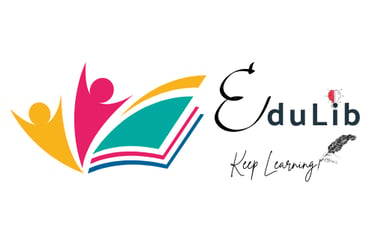
Top Reasons Why Students Choose a Course: A Comprehensive Guide
Uncover the top reasons that influence students' course choices with this comprehensive guide. Explore valuable insights to understand student preferences and make informed educational decisions.
I have enrolled several students over the years in surveying, management, construction, and civil engineering courses. They enrol for various reasons, and each motivation can play a significant role in shaping their educational and career paths. The following are some of the main reasons given by those students during the interview stage:
Opportunity for Higher Wages: One of the most common reasons students choose a particular course is the potential for higher wages and better career prospects. They might research industries and occupations that offer competitive salaries and opportunities for career growth. Students with financial goals often prioritise courses that can lead to well-paying jobs, as this helps them secure their financial future.
Diverse Opportunities: Some courses provide access to diverse career opportunities within a specific industry. For example, technology-related courses can lead to careers in software development, data analysis, cybersecurity, or project management. Students who are interested in exploring different roles within a particular field may choose courses that offer a wide range of career options.
Job Security: Certain industries and professions are known for providing stable and secure employment opportunities. Students who value job security might opt for courses that are in demand and less susceptible to economic downturns. Careers in healthcare, education, government, and essential services often appeal to those seeking long-term stability.
Travel Opportunity: Courses that offer travel opportunities can be enticing for students with a passion for exploring new cultures and environments. Fields such as international relations, engineering, tourism, hospitality, or language studies can provide avenues for working or studying abroad, broadening students' horizons and enriching their personal and professional lives.
Prior Experience in the Industry: Some students may already have practical experience or exposure to a specific industry, either through internships, part-time jobs, or family connections. Building on this prior experience, they may choose a course that aligns with their existing knowledge and skill set, making it easier for them to excel in their studies and future careers.
Seeking a Career Change: Students often enrol in a particular course as part of a career change. They may feel dissatisfied or unfulfilled in their current career and seek new opportunities in a different field that aligns better with their passions, interests, or values. Such individuals might choose courses that offer the necessary skills and knowledge to transition successfully into their desired industry.
Try Something New: Some students enrol in courses simply because they want to explore new interests and learn about diverse subjects. They may not have a specific career goal in mind but are excited about expanding their knowledge and skills in an unfamiliar field.
Positive Perception of the Industry: Perceptions about certain industries can strongly influence a student's decision to pursue a particular course. Industries with a positive public image, strong growth potential, and perceived social impact often attract students who want to be associated with such professions and contribute to meaningful work.
Referrals from Respected People: Recommendations from respected individuals, such as teachers, mentors, or industry professionals, can significantly influence a student's decision. Positive testimonials about a course or industry can boost students' confidence in their choice and reinforce their belief that the course aligns well with their interests and goals.
Existing Academic Skills Suiting the Industry: Students might choose a course that leverages their existing academic strengths and skills. For instance, a student with a natural talent for mathematics might opt for a course in engineering or finance. This choice allows them to build on their strengths and excel in their academic and professional endeavours.
Connect with Affluent Students: While not the most common reason, some students may choose courses based on the social connections they can potentially make. Attending a course with peers from affluent backgrounds might provide access to influential networks and opportunities in the future.
Follow in Parents' Footsteps: In some cases, students choose a particular course because their parents or family members have successful careers in that field. They may see it as a way to carry on a family legacy or receive guidance and support from experienced individuals.
In conclusion, students' motivations for enrolling in a particular course are diverse and often reflect their personal aspirations, financial goals, values, and prior experiences. Understanding these reasons can help educational institutions and policymakers design courses and programs that cater to the varied needs of students and provide them with the best possible opportunities for success in their chosen careers.
Five Ways That Teachers Can Improve Their Lessons: Students' Perspectives
- Dr Adewale Abimbola, FHEA, GMICE.
Seven Things That Make Learning Difficult in Classrooms: Students' Perspectives
- Dr Adewale Abimbola, FHEA, GMICE.






